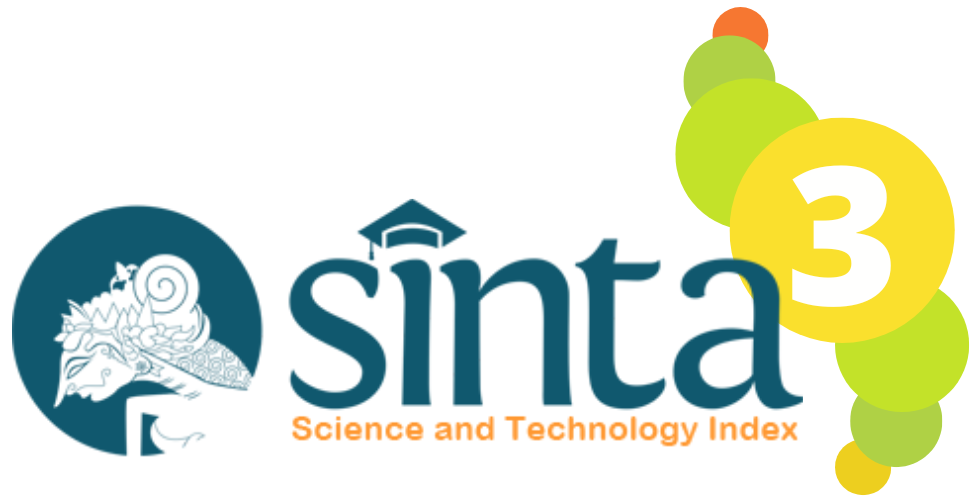EXPERIMENTATION OF THE KSIL MENTHOD (KONSEP, SIMULASI, IMPLEMENTASI, EVALUASI) IN TEACHING VISITING PROCEDURES TO STUDENTS
DOI:
https://doi.org/10.32585/cessj.v3i2.1090Abstract
This study aims to determine whether the KSIL (Concept, Simulation, Implementation, and Evaluation) method offered can provide a better insight into visiting ethics compared to groups of students who are taught using conventional learning models in Javanese, Javanese in class XII SMK Negeri 3 Malang Semester I of 2019/2020 Academic Year. This type of research is quasi-experimental research. The population in this study were all class XII students of the Computer and Network Engineering Department at SMKN 3 Malang. The research sample was 28 students of class XIIa and 27 students of class XIIb. The data obtained were analyzed using descriptive statistical analysis techniques and inferential statistics (t-test). The results of this study are: (1) Good visiting ethics insight of the experimental group students is very high with an average of 34.78, (2) Good visiting ethics insight in the control group students is high with an average of 28.93. (3) There is a significant difference in the value of good visiting ethics insight between groups of students taught using the KSIL (Concept, Simulation, Implementation, and Evaluation) method and groups of students taught using conventional learning. The Javanese learning model for class XII students of SMK Negeri 3 Malang. Semester I of the 2019/2020 Academic Year. This shows that the KSIL learning method (Concept, Simulation, Implementation, and Evaluation) has a positive effect on students' insights about good visiting ethics.
Downloads
References
Agustien, H. I. . (2004). Landasan Filosofis-Teoritis Pendidikan Bahasa Inggris. Jakarta: Depdiknas.
Anik Astari, I Wayan Sudiana, N. W. R. (2013). PENGARUH MODEL PEMBELAJARAN BERMAIN PERAN LAKON WAYANG KULIT TERHADAP WAWASAN NILAI KARAKTER SISWA PADA MATA PELAJARAN PKn KELAS V SD. Mimbar PGSD Undiksha, 1(1), 1–10.
Anitah, S. (2007). Strategi Pembelajaran di SD. Jakarta: Universitas Terbuka.
Chairilsyah, D. (2016). MENGAJARKAN TATA CARA BERTAMU KEPADA ANAK USIA DINI ( UNTUK GURU DAN ORANGTUA ). 5(2).
Depdiknas. (2005). Kumpulan Metode Pembelajaran/Pendampingan. Jakarta: Balai Pustaka.
Djamarah, S. B. (1996). Strategi Belajar Mengajar. Jakarta: Rineka Cipta.
Djamarah, S. B. (2006). Strategi Belajar Mengajar. Jakarta: PT Rineka Cipta.
Gulo, W. (2005). Strategi Belajar Mengajar. Jakarta: Grasindo.
Hasan, R., & Halliday, M. A. K. (1985). Language, context, and text: Aspects of language in a social-semiotic perspective. Victoria, Australia: Deakin University Press.
Nurhadi. (2004). Pembelajaran Kontekstual dan Penerapannya dalam KBK. UM Press.
Puspita, A. (2018). Pengaruh Model Pembelajaran Inkuiri Berbasis Observasi Lapangan terhadap Kemampuan Berpikir Analitis. Jurnal Pendidikan: Teori, Penelitian, Dan Pengembangan, 3(4), 468–474.
Ruminanti. (2007). Penggunaan Strategi Metode, dan Media Pembelajaran PKN SD Berbasis Belajar Aktif melalui Kegiatan Bermain PEran. Jurnal Sekolah Dasar, 16(1), 35–45.
Shaftel, F. R., & Shaftel, G. (1967). Role-playing for social values: decision-making in the social studies. Englewood Cliffs, N.J.: Prentice-Hall.
Slavin, R. E. (2010). Cooperative Learning (Riset dan Praktik). Nusa Media.
Subur. (2016). Materi, Metode, dan Evaluasi Pembelajaran dalam Perspektif Al Qur’an. JPA, 17(1), 43–72.
Sukadaryanto. (2013). Pengembangan Desain Pembelajaran Bahasa Jawa Berbasis Kompetensi di SMA Se-Jawa Tengah. Lingua, IX(2), 62–70.
Sukardi. (2006). Penelitian Kualitatif-Naturalistik dalam Pendidikan. Jakarta: Usaha Keluarga.
Suyono, H. (2011). Belajar dan pembelajaran Teori dan konsep Dasar. Bandung: PT Remaja Rosdakarya.
Swara Ditpertais Cyber Media. (2004). Kurikulum Berbasis Kompetensi. Swara Ditpertais: No. 17 Th. II, 18 Oktober 2004. Retrieved from http://www.ditpertais.net/swara/warta17-03.asp
Syaefudin, S. U. (2005). Total Quality Manajement dalam Konteks Pendidikan. Bandung: Prodi Adpen UPI.
Wafa, H. (2018). PENGGUNAAN METODE ROLE PLAYING DALAM PENIGKATAN KETERAMPILAN BERBICARA BAHASA JAWA KRAMA PADA SISWA KELAS V SD. Kalam Cendekia PGSD Kebumen, 6(4).
Wahab, S. A. (2008). Analisis Kebijaksanaan dari Formulasi ke Implementasi Kebijaksanaan Negara. Jakarta: PT Bumi Aksara.
Waluyo, E. (2007). Pendidikan Moral dan Budi Pekerti dalam Perspektif Perubahan: Menggagas Platform Pendidikan Budi Pekerti Secara Kontekstual dan Futuristik. Jakarta: Bumi Aksara.
Downloads
Published
Issue
Section
License
Authors who publish with the Civics Education and Social Science Journal (CESSJ) agree to the following terms:
- The journal allow the authors to hold the copyright without restrictions and allow the authors to retain publishing rights without restrictions.
- Authors retain copyright and grant the journal right of first publication with the work simultaneously licensed under a Creative Commons Attribution 4.0 International License that allows others to share the work with an acknowledgement of the work's authorship and initial publication in this journal.
- Authors are able to enter into separate, additional contractual arrangements for the non-exclusive distribution of the journal's published version of the work (e.g., post it to an institutional repository or publish it in a book), with an acknowledgement of its initial publication in this journal.
- Authors are permitted and encouraged to post their work online (e.g., in institutional repositories or on their website) prior to and during the submission process, as it can lead to productive exchanges, as well as earlier and greater citation of published work (See The Effect of Open Access).
in 2025, The Author

This work is licensed under a Creative Commons Attribution 4.0 International License.










